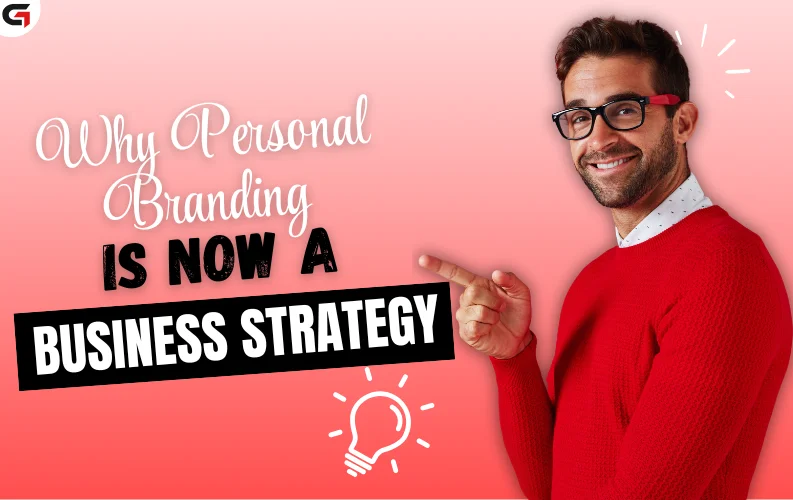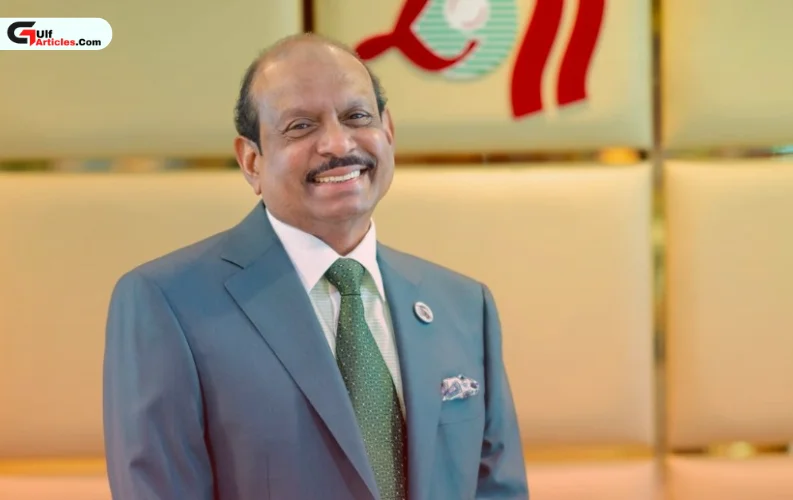Corporate branding was how companies operated for decades. A strong logo, a catchy slogan, and expensive advertising campaigns were enough to drive loyalty. Coca-Cola, Nike, Apple, and Microsoft all prospered because their brands turned into global icons.
But in the modern business world, the rules have changed. Consumers don't just want to know what a business sells, they want to know who is in it. Relatability, authenticity, and trust are more important than ever. People no longer purchase only products; they purchase into the personality and values of the leaders that operate businesses.
This has transformed personal branding beyond an instrument for professionalsl, it has evolved to become a fundamental business strategy. A solid personal brand reinforces credibility, draws investors in, deepens customer trust, energizes employees, and forms partnerships. In most instances, a leader's personal brand has come to be synonymous with the success of the overall business.
In this blog, we’ll explore in depth why personal branding has become a business strategy, how it evolved, the advantages it brings, and how entrepreneurs and executives can strategically develop personal brands that directly drive business growth.
The Evolution of Branding: From Corporations to People
In the 20th century, branding was corporate-led. Firms invested tons of money in advertising so that their name, logo, or slogan would become known across the globe. But globalization, technology, and social media changed the dynamics.
Then vs. Now
-
Then: Consumers only interacted with a company's product or service. The founders or leaders' face was seldom seen.
-
Today: Customers demand transparency. They want to know who the founder is, what the CEO believes in, and if leadership shares their values.
The growth of social media sped up this shift. Executives, entrepreneurs, and solopreneurs could now reach out directly to worldwide audiences without intermediaries. This ushered in a new paradigm: leaders themselves became brands.
Examples such as Elon Musk, Oprah Winfrey, and Richard Branson illustrate how individual branding has the ability to impact not only company reputation but industries at large. Their companies are attached to their own personalities in a manner that corporate branding itself could never duplicate.
Why Personal Branding Is Now a Business Imperative
1. Building Trust in a Distrustful World
Traditional marketing has lost a lot of its legitimacy. Folks nowadays are extremely cynical of advertising messages. Trust now emanates from human relations, and leaders who speak with their heart establish greater customer loyalty than nameless corporations.
2. Humanizing Companies
With automation and artificial intelligence driving businesses, companies stand the risk of seeming mechanical and impersonal. Personal branding introduces a human touch that makes customers feel like they are engaging with an individual and not a machine.
3. Taking Advantage of Social Media
Platforms like LinkedIn, Twitter, Instagram, and TikTok have provided leaders with direct access to audiences. A CEO's well-written post or video can provoke more interaction than a multi-million-dollar advertising campaign.
4. Winning Investors and Partners
Investors consistently say they don't just invest in companies, they invest in people. A leader's personal brand creates trust that the leader can deliver, which makes it easier to secure funding and partners.
5. Inspiring and Retaining Employees
Employees today seek purpose and inspiration. They want to work for leaders whom they respect, not only for companies that pay well. Strong personal brands build company cultures that attract and retain top talent.
Explore More:- Starting Up a Business in the United States?
Personal Branding as a Competitive Advantage
In crowded markets, where goods tend to be similar, personal branding is a key differentiator. Companies can no longer bank on product distinctiveness alone; they must leverage the personal reputation of their leaders.
Case Studies:
-
Oprah Winfrey: Her authentic and trustworthy personal brand transformed her ventures into international successes in television, publishing, and lifestyle businesses.
-
Gary Vaynerchuk: His blunt, no-nonsense personal brand created VaynerMedia and made him one of the world's most compelling voices in marketing.
-
Sara Blakely (Spanx): By being honest about beginning with $5,000 in capital and no outside investors, she resonated with millions of women and made Spanx a billion-dollar brand.
These examples show that personal branding goes far beyond image, it generates real, measurable business results.
The Core Elements of a Personal Branding Strategy
1. Authenticity
Authenticity is the foundation of personal branding. Today’s audiences can quickly detect insincerity. Leaders who stand by their values, admit mistakes, and share openly build stronger trust.
2. Consistency
A personal brand must be consistent across all platforms. What a leader says on LinkedIn should reflect what they say on Instagram, in interviews, and on stage.
3. Storytelling
People connect emotionally with stories more than facts. Leaders who share personal experiences, failures, turning points, and successes, create stronger bonds with their audiences.
4. Thought Leadership
Publishing blogs, articles, or speaking at conferences positions leaders as experts in their fields. This reinforces their credibility and makes them go-to voices in their industries.
5. Online Reputation Management
In the digital age, first impressions often come from Google searches. Leaders must actively manage profiles and content to safeguard credibility.
How Personal Branding Directly Affects Business Growth
-
Customer Loyalty: Customers relate to leaders as people, leading to stronger loyalty.
-
Visibility and Reach: Media and social interactions increase naturally for visible leaders.
-
Investor Confidence: Investors are more likely to back leaders with credible reputations.
-
Crisis Management: Trusted leaders can reassure stakeholders more effectively in times of crisis.
-
Partnership Opportunities: Personal branding attracts collaborations, speaking engagements, and new revenue streams.
A Step-by-Step Guide to Building a Personal Brand
Step 1: Define Your Identity
-
Identify your strengths, passions, and values.
-
Align your personal brand with your company’s purpose.
Step 2: Develop Your Story
-
Share your journey authentically.
-
Include challenges as well as successes.
Step 3: Create a Digital Presence
-
Optimize LinkedIn, Instagram, or other platforms.
-
Publish valuable, consistent content.
Step 4: Engage Genuinely
-
Reply to audience comments.
-
Collaborate with peers to expand influence.
Step 5: Establish Thought Leadership
-
Write blogs, publish research, or host podcasts.
-
Share knowledge that supports your authority.
Step 6: Monitor and Adjust
-
Track analytics to measure impact.
-
Refine your strategy to remain relevant.
Also Like This:- How Do I Start Up a Business? I Need Business Ideas
The Future of Personal Branding in Business
-
Executives as Influencers: Leaders will increasingly act like influencers, shaping discussions beyond their companies.
-
Personal Brand = Corporate Reputation: A leader’s personal reputation will directly define their company’s reputation.
-
Solopreneurs as Brands: For one-person businesses, the personal brand will remain the most powerful marketing tool.
Practical Tips for Entrepreneurs and Leaders
-
Be real, not perfect, authenticity beats polished advertising.
-
Use storytelling, narratives of struggle and success inspire.
-
Leverage affordable tools like Canva, Medium, and LinkedIn.
-
Join communities, networking builds credibility.
-
Commit to lifelong learning, branding evolves continuously.
Conclusion
Personal branding has moved from the sidelines to the center of business strategy. In a world where people invest in people, a strong personal brand builds trust, attracts investors, motivates employees, and inspires customer loyalty.
It is no longer optional, it is a strategic necessity for entrepreneurs, executives, and solopreneurs. The future of business will not be defined by logos alone, but by the individuals bold enough to put their voices, values, and stories forward.
Personal branding is not just about self-promotion. It is about leadership, authenticity, and vision, and it has become the business strategy of the modern age.
You may also like:-





















